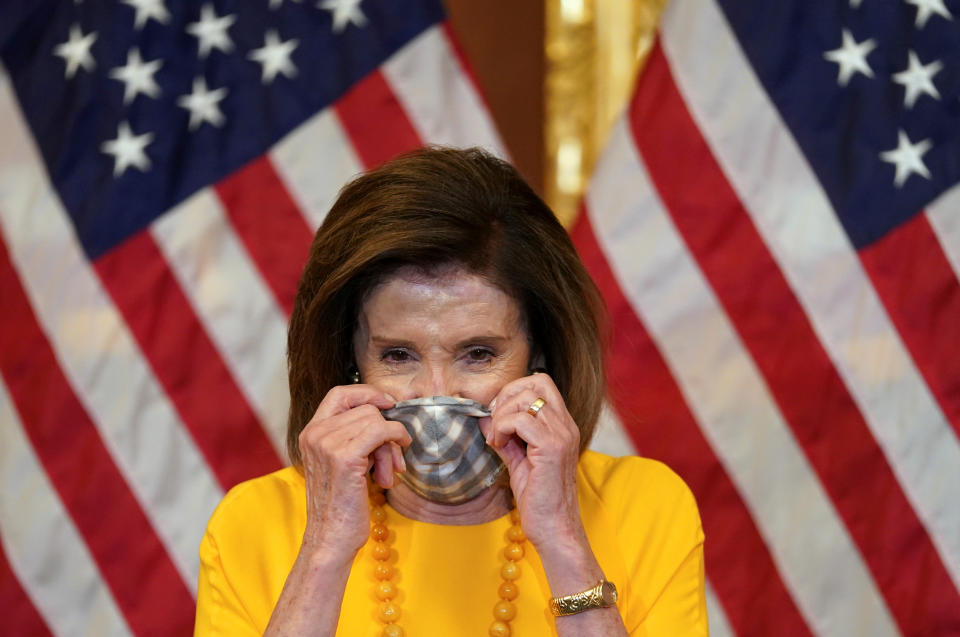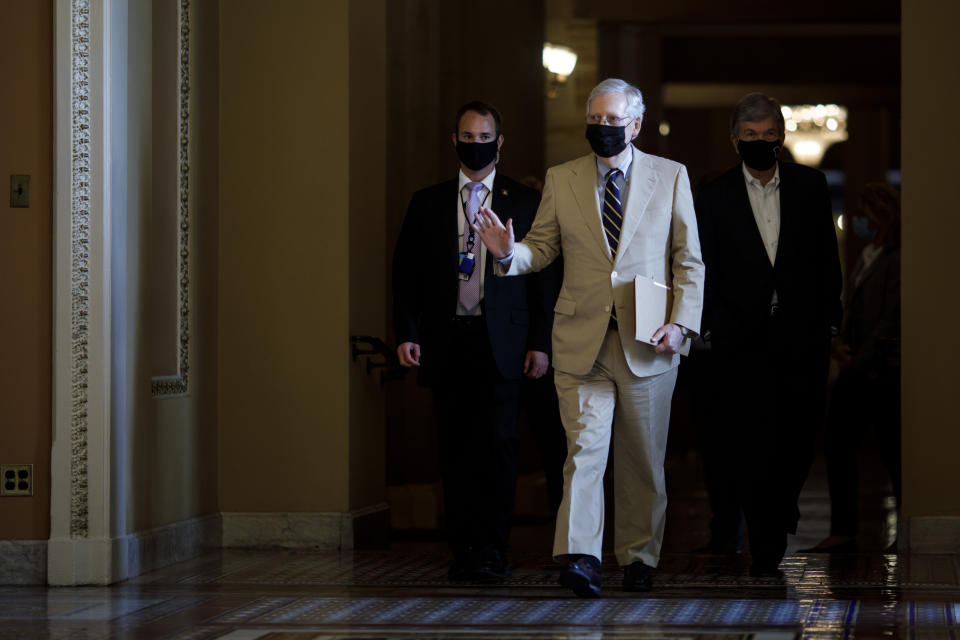The legal but 'phony issue' holding up Congress, Trump in coronavirus stimulus showdown
While Republican and Democratic lawmakers — along with the White House — spar over new stimulus legislation, one of the sticking points is a GOP-backed federal immunity law that would protect schools and businesses from COVID-19-related lawsuits.
The law, titled Safeguarding America's Frontline Employees To Offer Work Opportunities Required to Kickstart the Economy, or Safe to Work Act, has contributed to an impasse that includes fights over key provisions like renewing extra unemployment benefits and pandemic aid to states.
If enacted, the current version of the law would apply retroactively, barring actions from December 2019 through December 2024. It would also curb allegedly injured parties from sending demand letters to businesses in attempts to recover damages by giving businesses their own cause of action for “meritless” claims.
Yet according to some experts, the stalemate is little more than political theater and not an unmovable red line for either party. Both sides realize that with or without the law, COVID-19 personal injury and wrongful death cases are nearly impossible to prove.
“I think there’s a phony issue out there,” Richard Bell, a plaintiff’s attorney, told Yahoo Finance in a recent interview.
What doesn’t ring fully true is the Republican argument that in order to reopen, businesses and schools need additional assurance that they’ll avoid financial risks that come with defending coronavirus-related lawsuits. Meanwhile, Democrats contend that such a law would snatch viable avenues away from injured plaintiffs, which actually already exist.
‘More theater than substance’

However, businesses, schools and individuals covered by the proposed law already hold a trump card that will ultimately protect them from most ensuing liability. Plaintiffs would be hard pressed to maintain a legally sustainable cause of action.
“How are you going to prove it?” Bell asked of those who would look to hold an entity legally responsible for coronavirus injury. “Even if I prove gross negligence, how am I going to prove causation here?”
Benjamin Edwards, associate professor of law at UNLV William S. Boyd School of Law characterized fears about a wave of COVID-19 related lawsuits as “overblown, because it’s going to be very difficult for someone to prove where they contracted COVID.”
Still, Edwards told Yahoo Finance the proposed statute appears to be an overly aggressive “grab bag” of lawsuit-blocking provisions — and may lead to increased health risks from businesses that relax their adherence to safety guidelines.
The proposal “is more theater than substance,” he said.
“What they’re really trying to do is everything they can to deter these lawsuits and make them largely unwinnable,” he added.
Yet at least one business lawyer disagrees. Small business litigator Andrea Sager explained that, even if a plaintiff cannot prove her case, the business must still defend against filed actions.
Sager doesn’t believe the law will force businesses to relax their standards, “because they’re still afraid of getting sued,” she told Yahoo Finance. “The law says they still have to make that reasonable effort to comply with local standards.”
That said, many small businesses “live day to day, week to week, based on what money they’re brining in from their business,” Sager explained.
“That’s the issue with my clients — having to spend any amount to defend that lawsuit — whether the plaintiff has a chance in hell, or not,” she said. “Even businesses that did have savings, they’re running on ‘E’ right now just trying to stay alive.”

Under existing laws, a lawsuit aiming to hold an entity legally responsible for injuries resulting from infection would likely fail — absent a plaintiff showing where, how, or from whom they contracted COVID-19. That’s because plaintiffs are required to prove, and not just speculate about, what caused their injury.
“I can prove the worst damages in the world, [but] if I don’t prove causation, the case gets dismissed,” Bell said.
Adopting the Safe to Work Act may not change the ultimate outcome for prospective plaintiffs. But it no doubt would make bringing a COVID-19-related lawsuit even more challenging than it is under existing state laws.
For one, the law would raise the level of proof typically required for plaintiffs to prevail on claims of negligence, Edwards said. Rather than a “preponderance of evidence,” the new law would require plaintiffs to show “clear and convincing evidence” that a defendant caused their injury.
What's more, the law would block some plaintiffs from obtaining the very evidence they need to prove their claims with a “discovery stay.” It also pushes claims that would normally be handled by seasoned state court judges to federal judges with less experience hearing injury claims.
Sager said the law should leave room for plaintiffs with legitimate causes of action to bring their claims.
Lawsuit trends worth monitoring
However narrow, circumstances may exist where plaintiffs can successfully maintain coronavirus exposure suits, and perhaps even bring them to trial. Fear of suits alone may be enough to prevent some businesses from reopening, as pandemic shutdown orders are lifted.
Also, because Congress has an interest in both gauging how fear impacts the economy as well as getting the virus under control, Edwards says lawsuit trends are worth monitoring over time.
“If it were to turn into the worst case scenario, that courts are flooded with lawsuits and most cases have no real hope of proving causation...and these businesses are forced into bankruptcy because of the flood of cases, Congress could act and have a retroactive bill like this one,” he said.
Some states are adopting their own liability protection for businesses. Also, universities, primary education boards and businesses have been taking liability management into their own hands by asking students, customers and employees to sign away their right to sue over COVID-19. Interpretation and legal weight given to such waivers varies from state to state.
Alexis Keenan is a reporter for Yahoo Finance and former litigation attorney.
Follow Alexis Keenan on Twitter @alexiskweed.
